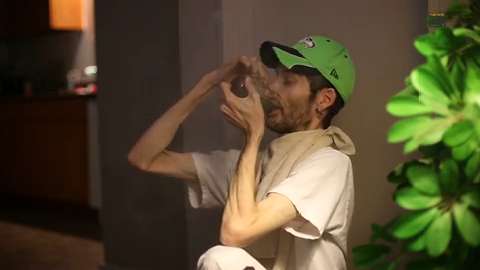
Eric Mevis, suffers from dystonia, in his case oral mandibular dystonia, a rare disease that causes facial muscles, such as those in his lips and tongue, to twist and contract uncontrollably. And according to Mr. Mevis, medical marijuana is one of the few drugs that helps him manage his symptoms.
He smokes it every day, but he’s not laughing. His symptoms are very severe.
People living with dystonia typically present with involuntary muscle contractions that can cause slow, repetitive, and painful movements that can also include tremors. Moreover, there are different types of dystonia that can impact just one muscle, or entire groups of muscles in the body.
Although it depends on the type of dystonia one has (some are genetic), early symptoms range from foot cramps to worsening handwriting after the hand becomes fatigued from writing over a period of time.
Symptoms can also include changes in speech, and rapid eye blinking in one or both eyes. And while initial symptoms might be mild, often appearing when the person is fatigued and or under considerable stress, the condition can sometimes progress.
Fortunately, the condition isn’t associated with cognition issues, although it is not uncommon for patients to experience intense anxiety and depression.
Sadly, there are no approved dystonia treatments to cure or slow the disease’s progression.
But there are treatment options that can lessen some of the symptoms—particularly when treating focal dystonias with injections of botulinum toxin.
Additionally, there are several classes of medications that target different neurotransmitters in the brain and can temporarily relieve symptoms.
Challenges still exist because these medications are typically approved by the FDA for other diseases and conditions, meaning these drugs are used “off-label” to treat dystonia.
Examples of these classes of drugs are: anticholinergic agents, GABAergic agents, and dopaminergic agents.
Each of these drugs affects people differently and can cause bothersome, sometimes serious side effects. Other types of treatment known to provide symptom relief include: Deep brain stimulation (DBS) and other surgeries as well as physical and speech therapy.
Although medical marijuana is approved for use in some states across the United States, patients and their loved ones should talk to their doctors about questions and concerns they have about treating their dystonia.


